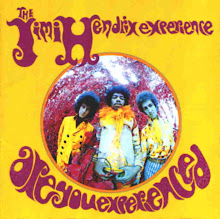 David Bowie's contribution to rock & roll has been wit and sophistication. He's smart, he's a true musician and he can really sing. He's got such a big range: I like the Ziggy Stardust voice, but he's got a lot of different voices. He's got his crooner voice, when he wants to. And he has a melodic sense that's well above anyone else in rock & roll. Most people could not sing some of his melodies. He can really go for a high note. Take "Satellite of Love," on my Transformer album: There's a part at the very end, where he goes all the way up. It's fabulous.
David Bowie's contribution to rock & roll has been wit and sophistication. He's smart, he's a true musician and he can really sing. He's got such a big range: I like the Ziggy Stardust voice, but he's got a lot of different voices. He's got his crooner voice, when he wants to. And he has a melodic sense that's well above anyone else in rock & roll. Most people could not sing some of his melodies. He can really go for a high note. Take "Satellite of Love," on my Transformer album: There's a part at the very end, where he goes all the way up. It's fabulous.There had been androgyny in rock from Little Richard on up, but David put his own patina on it, to say the least. He thought hard about that Ziggy character; he'd been studying mime, and he didn't do it just for laughs. He was very aware of stagecraft. He made an entire show out of that character -- and then he left it
I can't pick a favorite record. It depends on my mood -- any of the dance records; Ziggy Stardust; I always liked "Bewlay Brothers," that track on Hunky Dory. And the albums he did with Brian Eno, like Low and Heroes, are phenomenal. He's always changing, so you never get tired of what he's doing. And I mean all the way up to now: "The Loneliest Guy" on his latest album, Reality, is a great song. Yet another one.
We're still friends after all these years, amazingly enough. We go to the occasional art show and museum together, and I always like working with him. I really love what David does, so I'm happy that he's still doing it and that he's still interested. I saw him play here in New York on his last tour, and it was one of the greatest rock shows I've ever seen.






